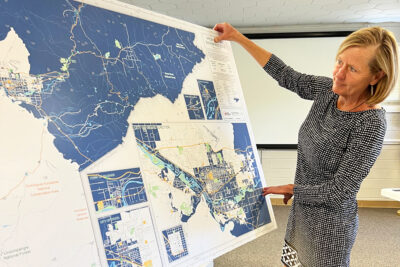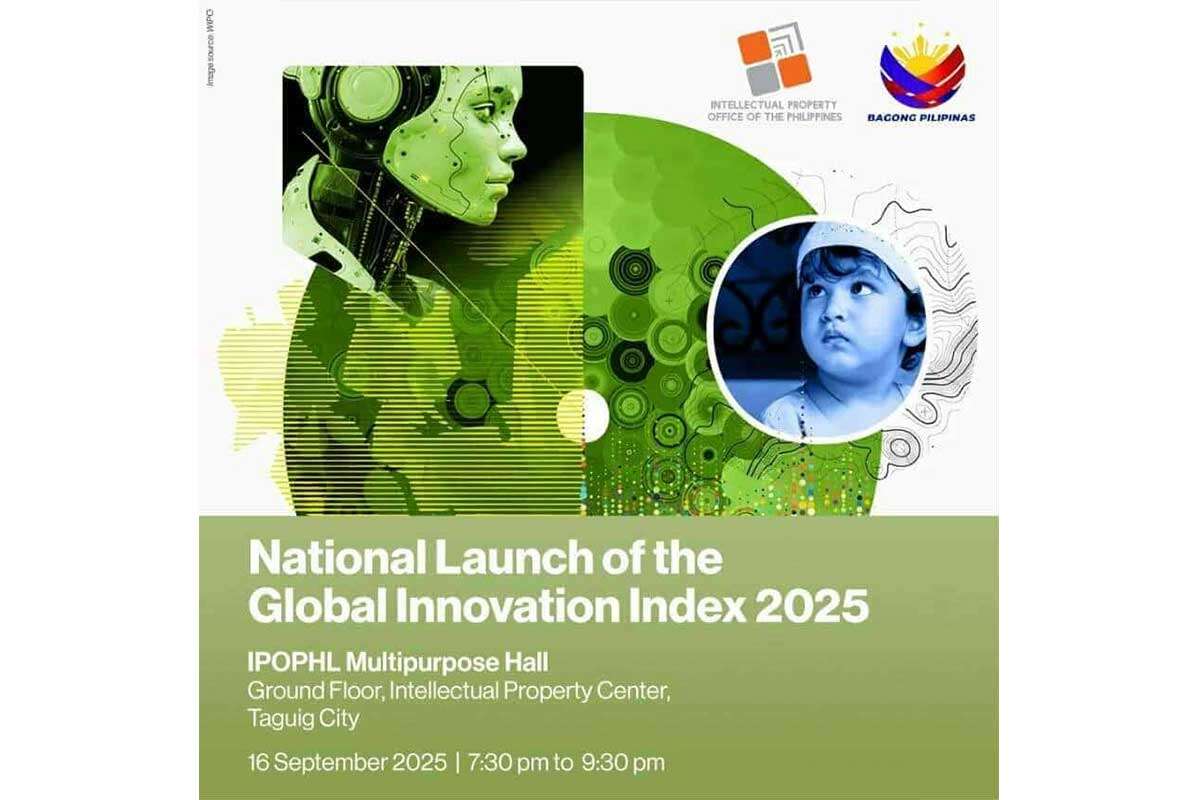By The Business Times Staff
Copyright thebusinesstimes

Mesa County businesses losing enterprise-zone status can apply to get grandfathered in, but the deadline looms
Tim Harty, The Business Times
Thank goodness for grandfather clauses.
Approximately 1,800 Mesa County businesses will no longer reside in a Colorado enterprise zone come Jan. 1, 2026. That means they reside in an area that no longer is deemed economically distressed by state criteria for unemployment, population growth and average per capita income.
That’s good news in that it means the area is doing too well economically to qualify as an enterprise zone.
It’s bad news in that it means those 1,800 businesses no longer qualify for the tax credits that an enterprise zone entitles them to.
But then there’s good news again: Those affected businesses can submit a grandfathering application by Oct. 16 to retain the tax credit incentives for another 10 years. Plus, they have to pre-certify every year, same as any enterprise-zone business must.
Kristin Rau has served since May 1 as the Mesa County Enterprise Zone administrator, a role tied to being the director of grants and incentives at Grand Junction’s Business Incubator Center, which administers the county’s enterprise zone program.
That means the duty of tackling the redesignation of enterprise-zone boundaries – the state mandates the re-evaluation every 10 years, and the next 10-year term starts Jan. 1 – fell to Rau.
An economist and professed lover of maps, Rau is well-suited for the role and the challenges it presented as she tried to ensure as many businesses as possible remained in the Mesa County Enterprise Zone.
The two business-heavy areas that couldn’t be reconciled in the redesignation of boundaries were:
The heart of downtown Grand Junction, between First and Seventh streets and Gunnison and Pitkin avenues.
Much of the Grand Junction North and Grand Junction Regional Airport area, predominantly north of Patterson Road between 23 Road and 27 Road, and it pulls in Mesa Mall and a chunk of the Horizon Drive district.
“Those are going to be really critical areas to get grandfathered into the zone,” she said.
And that’s the critical message to relay with the Oct. 16 deadline fast approaching: If your business is no longer in the enterprise zone, submit the application to get grandfathered in and continue the benefits.
Or get the benefits for the first time. This is an important one to Rau, who said she couldn’t believe how many businesses have not been taking advantage of the enterprise-zone status.
“The message I’d really like to get out is: You know what? These enterprise zone credits have been sitting on the table, and so very few businesses have leveraged them in the past. It’s kind of maddening,” she said.
Rau added in an email: “My goal is to partner with as many businesses as possible, so they can earn those tax credits and then use that money to reinvest in our community – to grow their business, create more jobs and stimulate economic growth of our region: This is the mission of The Business Incubator!”
Rau said any business that needs help with its application can call her office phone direct at 970-248-2994 or call the Business Incubator Center at 970-243-5242 or email mcezadmin@gjincubator.org.
For more details about how to apply and what the tax incentives are, see the information boxes that accompany this article.
How to Apply for Grandfathered Status
Businesses that will no longer reside in the Mesa County Enterprise Zone as of Jan. 1, 2026, can apply for grandfathered status and retain the ability to get the tax credits available to enterprise-zone businesses.
The Grand Junction Business Incubator Center provided the following direction for the application process:
F 1. Complete DR 0078 form and explain your planned activities eligible for Enterprise Zone tax credits over the next 10 years. (This is best case planning and there is no obligation or penalty if these activities are not performed or are of varying amounts.)
F 2. Email your form to mcezadmin@gjincubator.org.
F 3. Complete the OEDIT Google form, which the Business Incubator Center will send you, and attach your completed DR 0078 to this form where prompted.
After Oct. 16, you will receive a confirmation of your new Enterprise Zone status. Please be sure to pre-certify for the 2026 tax year as soon as you receive this notice (or 90 days prior to your start of your 2026 fiscal year if it is not calendar year) and keep the PAR number in your records for reference when you file your 2026 taxes.
Remember that pre-certification is an annual event: even if you are grandfathered into the Enterprise Zone for 10 years, you must pre-certify every year in order to be eligible for EZ tax credits.
The Mesa County Enterprise Zone Program encourages all affected businesses to act promptly. For assistance with the application process, please contact the Business Incubator at: 970-243-5242 or email: mcezadmin@gjincubator.org
Enterprise Zone Drop-In Sessions
The Business Incubator Center will host a series of drop-in informational sessions regarding the Mesa County Enterprise Zone Tax Credits and the grandfathering process.
The dates, times and Grand Junction locations of the meetings are as follows:
Sept. 25 – 2:30 to 4:30 p.m., Western Colorado Community Foundation, 128 N. Fifth St.
Sept. 30 – 9:30 a.m. to 1 p.m., Downtown Development Authority, 101 S. Third St., Suite 100
Oct. 2 – 9 a.m. to 1 p.m., City Hall Auditorium, 250 N. Fifth St.
Oct. 8 – 9 a.m. to 4 p.m., The Business Incubator Center, 2591 Legacy Way.
At these sessions, businesses can:
Learn how enterprise zone tax credits work and how to apply.
Receive guidance on the grandfathering process.
Summary of Tax Credits
Below is a list of the tax credits currently available through Colorado’s Enterprise Zone program:
Enterprise Zone Job Training Tax Credit
Businesses can earn a state income tax credit for 12 percent of eligible job-training costs for employees working within the enterprise zone. This tax credit helps develop a skilled workforce in distressed communities.
Enterprise Zone New Employee Tax Credit
Businesses can earn a state income tax credit of $1,100 per net new employee. Businesses can earn more tax credits if the business is an agricultural processor or is in an enhanced rural enterprise zone. This tax credit encourages businesses to hire and expand employment opportunities, thus reducing unemployment rates.
Enterprise Zone Employer-Sponsored Health Insurance Tax Credit
For the first two years that a business is in an enterprise zone, the business can earn $1,000 per net new employee insured under a qualified health plan for which the employer pays at least 50 percent of the cost. This tax credit encourages businesses to provide a qualified health insurance plan to employees, potentially improving community health and reducing public health costs.
Enterprise Zone Research and Development Tax Credit
Businesses can earn a 3 percent tax credit for an increase in annual research and development expenses compared to what they spent the prior two years. Investment in research and experimentation supports an innovative economy.
Enterprise Zone Vacant Commercial Building Rehabilitation Tax Credit
If a business rehabilitates a commercial building that is at least 20 years old and has been vacant for at least two years, the business can earn a state income tax credit for 25 percent of rehabilitation costs (up to $50,000 in credits on $200,000 or more on costs). This tax credit encourages the revitalization of dilapidated buildings and blighted areas, bringing new businesses and employees to the community.
Enterprise Zone Commercial Vehicle Investment Tax Credit
A taxpayer can earn a state income tax credit for 1.5 percent of the price of new commercial trucks, truck tractors, tractors, semi-trailers, and associated parts registered in Colorado and used in an enterprise zone.
Enterprise Zone Investment Tax Credit
Businesses can earn a state income tax credit for 3 percent of an investment in business personal property. New business personal property increases a company’s capacity. The taxes a business pays on these purchases far exceed all tax credits under the enterprise zone program.
Enterprise Zone Sales and Use Tax Exemption for Manufacturing and Mining
The statewide sales and use tax exemption for purchases of manufacturing equipment is expanded to include noncapitalized equipment and parts if the business is located within a zone. The enterprise zone statutes also expand manufacturing to include mining.
– Source: Colorado Office of Economic Development and International Trade



